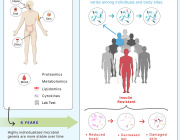News
Hotel Booking with negotiated price
Park Inn by Radisson Krakow Hotel
|
Please be careful: if some third-party company contacts you for Hotel booking & Transport and asks about your Credit card information.
Please book your Hotel only using the special link below!
We do not have any representatives or Travel Agency. If anyone contacts you, it is not related to Targeting Microbiota 2019 Congress.
|
Special Rate for Room Booking at Park Inn by Radisson Krakow
 |
 |
|
Situated close to the area of tourist attractions, Park Inn By Radisson Krakow features views of Krakow, the Wawel Royal Castle and the Kosciuszko Mound. There is also a brief car trip from the Ogrody Krolewskie na Wawelu and Wawel Cathedral. Targeting Microbiota 2019 Committee offers to the congress attendees a special privileged rate for your booking:
These prices include breakfast buffet, Wi-Fi connection and a free access to their modern fitness area.
|
|
|
Promotional Code: MICROB |
|
|
Terms & conditions: All room reservations during the Targeting Microbiota 2019 congress - October 10 - 11, 2019 will be made via dedicated booking link. This link will transfer you to Hotel website, where your reservation should be completed by you. You will have to guarantee the reservation by credit card. Credit card will be fully charged 14 days prior to your arrival. After this date no free cancelation will be possible and all reservations will be fully charged – 115 EUR/night (SGL room) or 125 EUR/night (DBL room). Paid reservation will be kept till 7.00 a.m. next hotel day. Room prices are valid from Oct 10, 2019 till Oct 12, 2019. |
|
Speakers
 Role of microbiota in Graft-versus-Host Disease (GvHD) and complications of allogeneic stem cell transplantation
Role of microbiota in Graft-versus-Host Disease (GvHD) and complications of allogeneic stem cell transplantation
Daniela Weber, Regensburg Universitätsklinikum, Germany
 Advances in fecal microbiota transplantation
Advances in fecal microbiota transplantation
Peter Konturek, Teaching Hospital of the University of Jena, Germany
 Human gut microbiota: from structures to functions
Human gut microbiota: from structures to functions
Hervé Blottière, INRA, France
 Role of the microbiome in inflammatory bowel diseases: using multi-omics dataset
Role of the microbiome in inflammatory bowel diseases: using multi-omics dataset
Marcus Claesson, University College Cork, Irland
 Microbiota and autoimmune diseases: a shield or a sword?
Microbiota and autoimmune diseases: a shield or a sword?
Filippo Canducci, University of Insubria, Italy
 The human infant gut microbiota mobilome
The human infant gut microbiota mobilome
Knut Rudi, Norwegian University of Life Sciences, Norway
 Skin microbioma approaches: atopic dermatitis versus Psoriasis
Skin microbioma approaches: atopic dermatitis versus Psoriasis
Lorenzo Drago, University of Milano, Italy
 Dysbiosis profiling and pediatric diseases: pattern correlations and bacterial dysfuntions
Dysbiosis profiling and pediatric diseases: pattern correlations and bacterial dysfuntions
Lorenza Putignani, Bambino Gesù Children's Hospital and Research Institute, Italy
 Microbiota and chronic under nutrition
Microbiota and chronic under nutrition
François Leulier, Institut de Génomique Fonctionnelle, France
 Probiotics and bone health: recent scientific advances and perspectives
Probiotics and bone health: recent scientific advances and perspectives
Roberto Pacifici, Emory University School of Medicine, USA
 The new techniques to study the microbiota
The new techniques to study the microbiota
Jakob Zimmermann, University of Bern, Switzerland
Unreliable animal facilites microbiota and inflammasome
Francesca Ronchi, University of Bern, Switzerland
Culturomics: illuminating dark matter
Grégory Dubourg, Aix-Marseille Université, France
Microbiota, translocation and kidney transplantation
Didier Ducloux, CHU Besançon, France
Diet-microbe interactions and their impact to cardiometabolic health
Federico Rey, University of Wisconsin-Madison, USA
The Second Symposium on Skin Microbiota 2017 concluded with huge success
 The Second ISM Symposium on Skin Microbiota: Towards a New Era in Dermocosmetics which held in June 15, 2017 in Paris was a huge success and gathered more than 70 academics, scientists and industrial experts.
The Second ISM Symposium on Skin Microbiota: Towards a New Era in Dermocosmetics which held in June 15, 2017 in Paris was a huge success and gathered more than 70 academics, scientists and industrial experts.
During this one-day symposium, the scientific committee discussed about new approaches to analyse and study skin microbiota and shared many new research studies.
Subcategories
-
Alerts
- Article Count:
- 310
-
General Information
- Article Count:
- 93
-
Microbiota News & Media
- Article Count:
- 247
-
ISM Newsletter
- Article Count:
- 40

























































